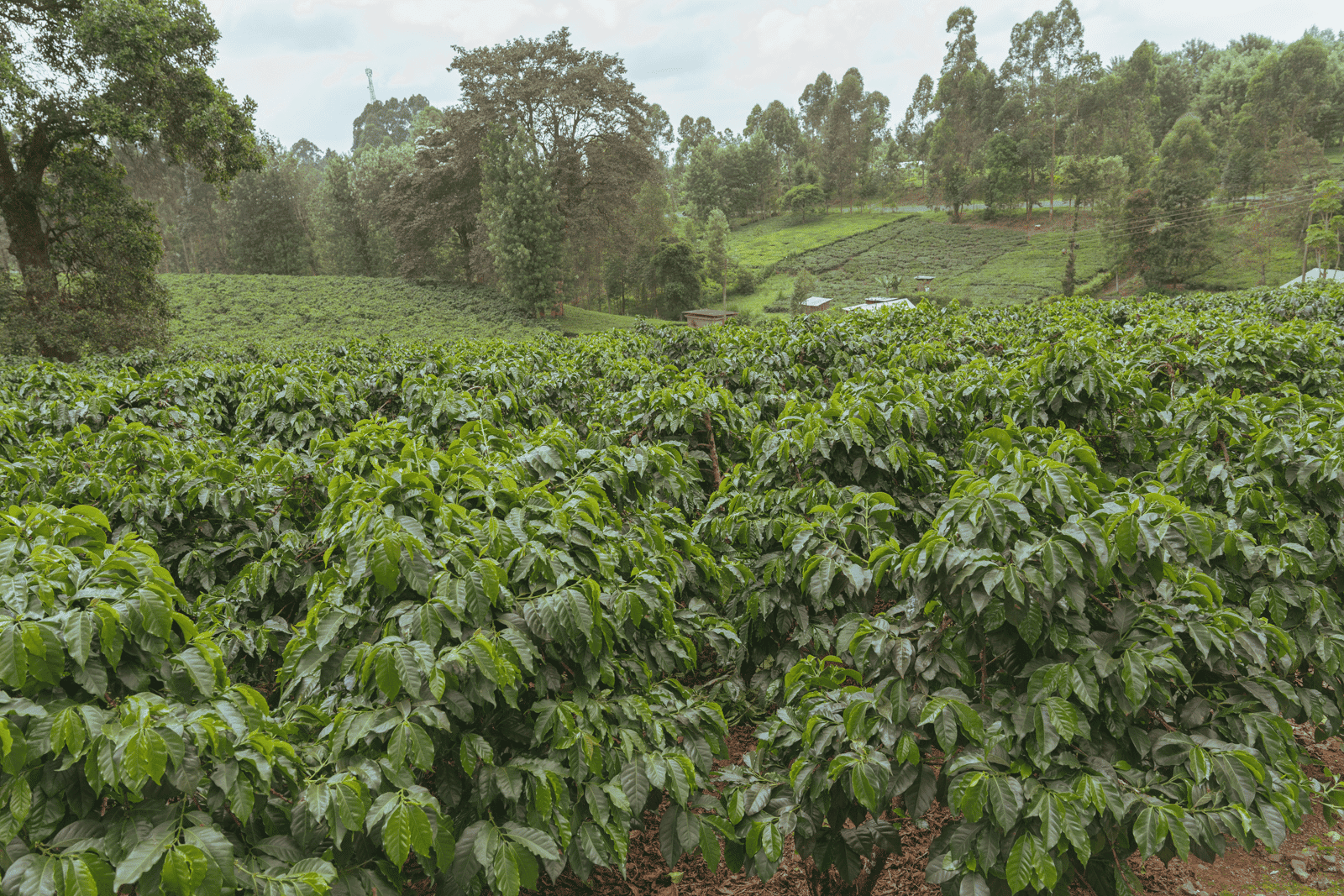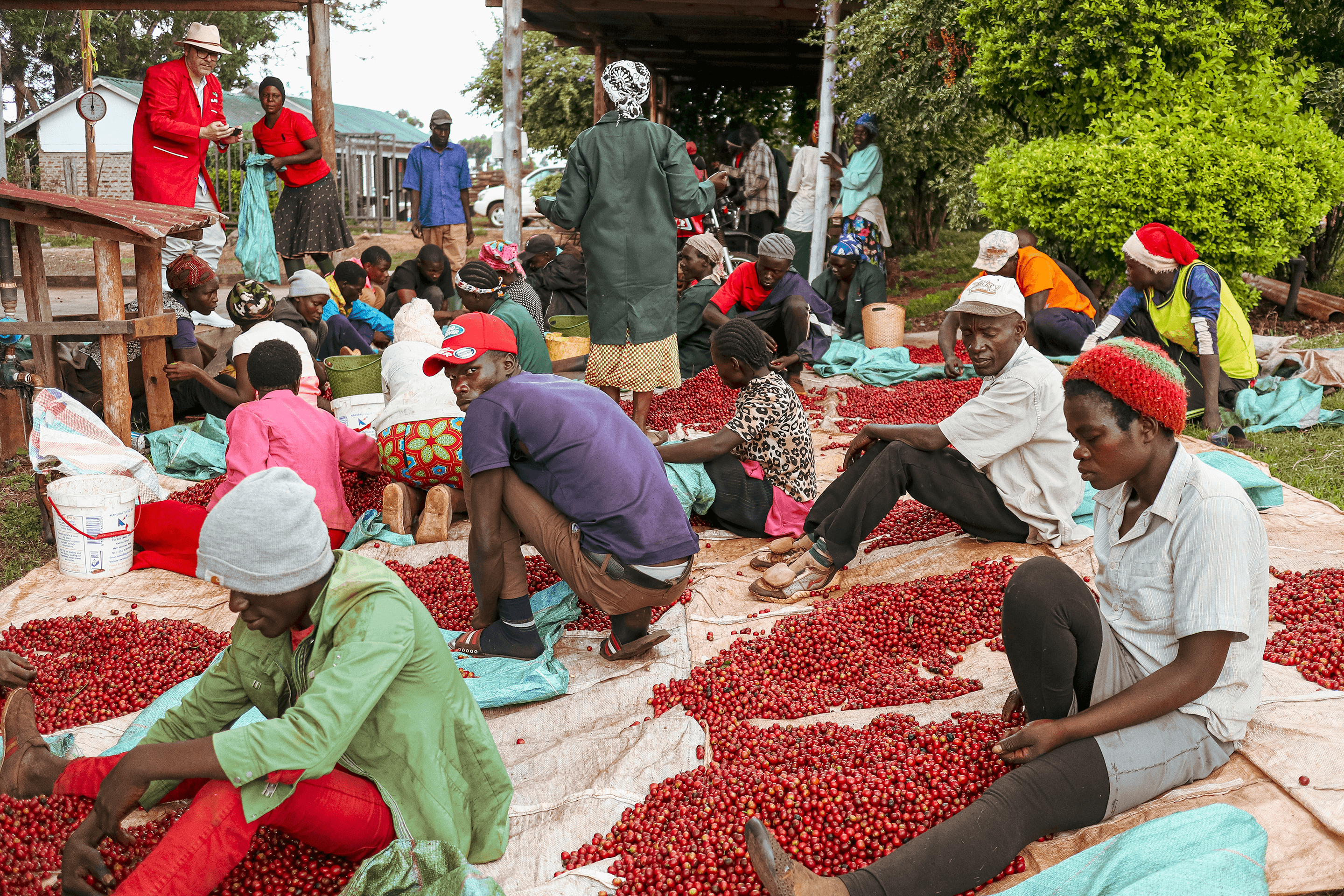
Kenya, East Africa's leading economic powerhouse, stretches along the Indian Ocean coast. Referred to as a "treasure trove of wildlife," it's home to 59 national parks, national reserves, and wildlife sanctuaries, making a key industry. Safari tours are particularly popular among visitors. Kenya gained independence from British rule in 1963. Unlike its neighbors Tanzania and Uganda, which opted for socialism, Kenya embraced capitalism and pro-Western open policies. By focusing on the development of manufacturing, tourism, and agriculture, the country maintained high economic growth rates, earning the nickname "Africa's model student" in the 1970s. Kenya is also known for being the first country in the world to introduce the mobile money transfer system "M-Pesa," a prime example of leapfrog development. M-Pesa allows users to send money, make payments, and deposit or withdraw funds via SMS, effectively replacing traditional banking services. Coinciding with the rapid spread of mobile phones, M-Pesa quickly gained traction among the unbanked poor and in areas lacking banks and ATMs. By 2022, M-Pesa's penetration rate reached about 90%, with transaction volumes equivalent to roughly 70% of Kenya's GDP. The proliferation of M-Pesa and expansion of its services have transformed the capital Nairobi, dubbed "Silicon Savannah," into a thriving technology hub. Global tech giants like IBM, Intel, and Microsoft have established bases here. Kenyan startups are attracting investment levels comparable to Nigeria, South Africa, and Egypt. Incubation centers like iHub are fostering entrepreneurship and innovation.

Kenya, home to many volcanoes, including Mount Kenya, has an ideal environment for coffee production with its nutrient-rich volcanic ash soil, red earth, high altitudes, and suitable climate. Despite being a neighbor to Ethiopia, the birthplace of coffee, Kenya is a relatively new coffee producer, with its coffee production beginning only about 100 years ago. The most famous coffee-growing regions are Nyeri and Embu, located at the foot of Mount Kenya, approximately a three-hour drive from the capital Nairobi. However, there are concerns about the loss of agricultural land due to urbanization. Coffee production in Kenya is fully systematized, making it more of an industry than mere agriculture. The mechanized, almost clinical approach at coffee-processing facilities gives the impression of an industrial factory. This reflects Kenya's colonial history under British rule. Kenya grows a limited number of coffee varieties, with SL28, SL34, Ruiru11, and Batian making up the majority. The "SL" in SL varieties refers to the Scott Agricultural Laboratories, established by the British during the colonial era. These varieties are known for their productivity and quality and have since spread to other coffee-producing countries. Ruiru11 and Batian were developed by the Coffee Research Foundation (now KALRO) to resist diseases such as coffee leaf rust and coffee berry disease (CBD). Ruiru11, developed in 1985 as a solution to diseases, was initially criticized for its inferior cup quality. In 2010, Batian was developed to overcome this weakness. It maintains the disease resistance of Ruiru11 but also has an excellent cup quality. These varieties are named after local landmarks: "Ruiru" after the area hosting the research center, and "Batian" after Mount Kenya's highest peak. Kenya's coffee production is built on a well-organized system centered around auctions. About 90% of coffee is traded through weekly auctions held every Tuesday at the Nairobi Coffee Exchange. This auction system is highly regarded, so much so that the Cup of Excellence system was modeled after it. Interestingly, Kenya has never hosted a Cup of Excellence competition, likely due to the strength of its existing auction system. While this system ensures that quality is fairly evaluated, it also has drawbacks. Producers have little room to negotiate prices, and due to the system's structure, payments to producers are often delayed by several months after a sale is made, leading to financial difficulties for many farmers. These challenges are fundamental issues contributing to the high prices and declining production of Kenyan coffee. In response to these structural weaknesses, a new generation of coffee producers is emerging. We're excited to introduce two curators who symbolize this new era. We invite you to witness this pivotal moment in history, as they shape the future of Kenyan coffee.
Pre-order Closed
Rockbern 2024/25
Producer/Curator:
Peter Muchiri
After graduating from the university with a degree in Accounting, I worked in banking and consulting firms until my wife and I founded Rockbern Coffee in 2012. The reason why I went into the coffee business is that I made a promise to my grandfather who was a very passionate coffee farmer. When I left my village, I…Read More
3,322roasters are interested
445roasters purchased
Sample Request :
Start
End
Pre-oder :
Start
End
Estimated Delivery :
Early September 2025
In Transit
Kenyacof 2023/24
Producer/Curator:
Daniel Magu
If you visit many coffee roasters in Europe, you will see many jute bags with ‘32cup’ written on them. 32cup has changed its name to Sucafina Specialty but it is still one of the major importers in Europe. Kenyacof, a sister company of Sucafina Specialty, is a marketing agent that has a dry mill and an exporter that serves as a link between smallholders in Kenya and roasters. Kenyacof owns a dry…Read More
2,360roasters are interested
195roasters purchased
Sample Request :
Start
End
Pre-oder :
Start
End
In Transit
Vava Coffee 2023/24
Producer/Curator:
Vava Angwenyi
208roasters are interested
34roasters purchased
Sample Request :
Start
End
Pre-oder :
Start
End
Price
10.67 USDFOB/kg
Quantity
0/47 bags (30kg)
Samples
Out of Stock
-
Price
10.67 USDFOB/kg
Quantity
0/60 bags (30kg)
Samples
Out of Stock
-
Price
9.84 USDFOB/kg
Quantity
0/18 bags (30kg)
Samples
Out of Stock
-
Price
10.67 USDFOB/kg
Quantity
0/81 bags (30kg)
Samples
Out of Stock
-
Price
10.67 USDFOB/kg
Quantity
0/150 bags (30kg)
Samples
Out of Stock
-
Price
10.67 USDFOB/kg
Quantity
0/74 bags (30kg)
Samples
Out of Stock
-
Price
10.67 USDFOB/kg
Quantity
0/164 bags (30kg)
Samples
Out of Stock
-
Price
8.3 USDFOB/kg
Quantity
0/0 bags (30kg)
Samples
Out of Stock
-
Price
7.3 USDFOB/kg
Quantity
0/0 bags (30kg)
Samples
Out of Stock
-
Price
6.8 USDFOB/kg
Quantity
0/0 bags (30kg)
Samples
Out of Stock
-
Price
7.8 USDFOB/kg
Quantity
0/0 bags (30kg)
Samples
Out of Stock
-
Price
9.74 USDFOB/kg
Quantity
0/0 bags (30kg)
Samples
Out of Stock
-
Price
7.98 USDFOB/kg
Quantity
0/0 bags (30kg)
Samples
Out of Stock
-
Price
6.38 USDFOB/kg
Quantity
0/0 bags (30kg)
Samples
Out of Stock
-
Price
10.3 USDFOB/kg
Quantity
0/0 bags (30kg)
Samples
Out of Stock
-
Price
9.65 USDFOB/kg
Quantity
0/0 bags (30kg)
Samples
Out of Stock
-
Price
10.34 USDFOB/kg
Quantity
0/0 bags (30kg)
Samples
Out of Stock
-
Price
10.14 USDFOB/kg
Quantity
0/0 bags (30kg)
Samples
Out of Stock
-
Price
9.01 USDFOB/kg
Quantity
0/0 bags (30kg)
Samples
Out of Stock
-
Price
13.28 USDFOB/kg
Quantity
0/0 bags (30kg)
Samples
Out of Stock
-
Price
8.95 USDFOB/kg
Quantity
0/0 bags (30kg)
Samples
Out of Stock
-
Price
9.97 USDFOB/kg
Quantity
0/0 bags (30kg)
Samples
Out of Stock
-
Price
9.91 USDFOB/kg
Quantity
0/0 bags (30kg)
Samples
Out of Stock
-
Price
10.81 USDFOB/kg
Quantity
0/0 bags (30kg)
Samples
Out of Stock
-
Price
9.87 USDFOB/kg
Quantity
0/0 bags (30kg)
Samples
Out of Stock
-
Price
9.18 USDFOB/kg
Quantity
0/0 bags (30kg)
Samples
Out of Stock
-
Price
9.09 USDFOB/kg
Quantity
0/0 bags (30kg)
Samples
Out of Stock
-
Price
10.14 USDFOB/kg
Quantity
0/0 bags (30kg)
Samples
Out of Stock
-
Price
8.99 USDFOB/kg
Quantity
0/0 bags (30kg)
Samples
Out of Stock
-
Price
9.46 USDFOB/kg
Quantity
0/0 bags (30kg)
Samples
Out of Stock
-